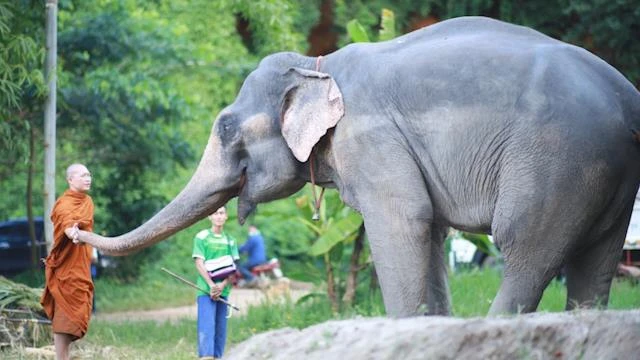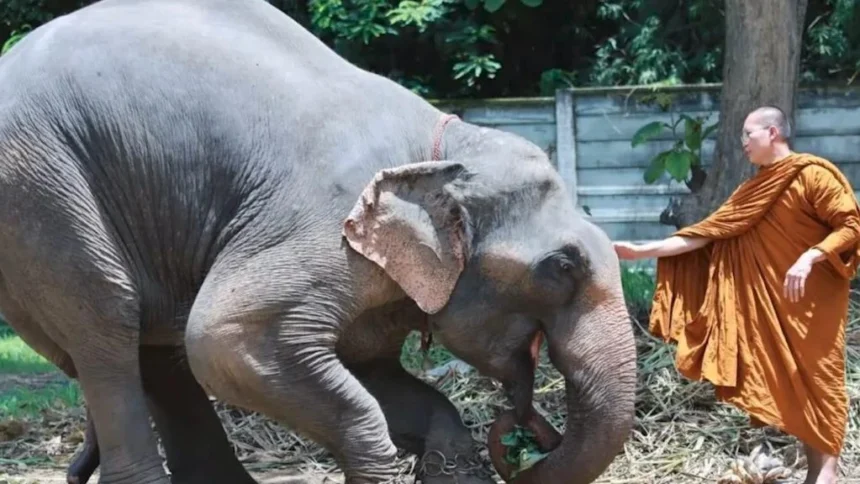LAMPANG – Elephant handlers urged to stay alert after Plai Khamsaen, a 33-year-old bull elephant, known for his intelligence, who was rescued by a well-known monk from Chiang Mai, seriously injured his handler.
The Elephant Hospital at the Thai Elephant Conservation Center in Hang Chat, Lampang, reported that Plai Khamsaen, originally from Chiang Rai, changed owners several times before being brought under the care of the National Elephant Institute.
Phra Kru Sangharak Weerawat, a respected monk from Chiang Mai, bought his freedom as the eighth out of ten elephants and donated him to the institute as a national asset on August 4, 2022. Recently, Plai Khamsaen injured his handler, causing a broken neck. The extent of the injury is under review.
Reports say that before the accident, the handler tried to fit a new bell around the elephant’s neck. Plai Khamsaen hadn’t shown clear signs of musth, a period when male elephants can become aggressive, so the handler felt it was safe and kept him in the forest.
It’s a reminder to all handlers: even when signs of musth seem to have passed, caution is essential. Never approach an elephant alone during these unpredictable periods.

The centre has seen similar incidents with other elephants who don’t always show the usual signs of musth or complete all four stages. Staff now take extra care with such elephants, keeping them away from unfamiliar people and limiting their movement.
When Phra Kru Aod visited Plai Khamsaen, he noticed the elephant looked much healthier. Plai Khamsaen, known for his gentle nature, greeted the monk warmly and even bowed to him without any instruction, showing his intelligence and bond with his rescuer.
Dr. Taweepoke Angkawanich, head of the conservation unit, shared that it’s unclear if the attack happened because Plai Khamsaen was entering musth or if musth started after the incident. After the event, they noticed a small amount of oily secretion from the elephant’s temples—a sign of musth—but it had mostly dried up. Records suggested he should have completed his musth phase two to three months earlier.
This episode shows that some elephants, like Plai Khamsaen, can experience incomplete musth, with mild symptoms that fade quickly. Handlers sometimes assume the risk has passed, but this phase can return at any time, making the behaviour unpredictable.
There’s also been an uptick in similar cases, possibly due to hotter weather and less natural food. Physically, elephants are becoming heavier with tighter muscles, and their behaviour shifts—they listen less to handlers and show more independence. In Plai Khamsaen’s case, the bond between the elephant and his handler may have played a role in the incident, but evidence points to the injury happening before the musth was obvious.
Handlers across the country are reminded to watch for signs of musth, especially when they appear incomplete or irregular. Never approach an elephant alone during these times; always work with a partner for safety.














